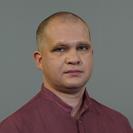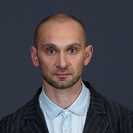Philosophy
The course introduces non-specialists to the main problems of philosophy as a science and current approaches to solving them. During the course, the listeners will be able to understand and interpret both classic and current issues in various fields of philosophy, such as ontology, epistemology, philosophy of mind, aesthetics, ethics, etc.
About the course
The aim of the course is to demonstrate the diversity of the range of problems addressed by philosophy, their topicality, and the most significant approaches to their solution. The specificity of philosophical knowledge combines concreteness in posing questions about the Universe and about the most important issues of everyday life.
Our experts will present original interpretations of specific philosophical issues and characterize topical approaches to the search for answers to perennial questions by modern authors. The suggested tests and questions will not only help students to comprehend and systematize the material presented, but also inspire their own philosophical research, as well as productive feedback from teachers and each other.
Upon completion of the course, you will be able to:
— use philosophical conceptual and categorical apparatus, basic principles of philosophy in the analysis and evaluation of social problems and processes, trends, facts, phenomena in their possible forecasting;
— apply methods and means of cognition for intellectual development, increase of cultural level, professional competence;
— form and argue your own position on various problems of philosophy;
-use the acquired knowledge in scientific creative activity.
Upon completion of the course, you will know:
— the main stages of development of world philosophical thought; the most important schools and doctrines of outstanding philosophers; the main branches of philosophical knowledge — ontology of the theory of cognition, social philosophy, philosophical anthropology;
— the main problems, theories and methods of philosophy, the main problems and concepts of modern philosophy, the content of modern philosophical discussions on the problems of social development;
— basic philosophical concepts and categories, regularities of development of nature, society and thinking.
Course Programme
1. What is Philosophy?
2. What is Knowledge?
3. What is the Human?
4. What is Truth?
5. What is Mind?
6. What is Universe?
7. What is the Good?
8. What is Justice?
9. What is Freedom?
10. What is Art?
-
Никита Всеволодович Кузнецов
Доктор философских наук, директор Института философии -
Александр Александрович Львов
Кандидат философских наук, и.о. заведующего кафедрой истории философии -
Юлия Владимировна Шапошникова
Кандидат философских наук, доцент, доцент кафедры науки и техники СПбГУ -
Игорь Юрьевич Ларионов
Кандидат философских наук, доцент, доцент кафедры этики -
Никита Олегович Ноговицын
Кандидат философских наук, доцент, доцент кафедры культурологии, философии культуры и эстетики -
Глеб Викторович Карпов
Кандидат философских наук, старший преподаватель кафедры логики СПбГУ -
Елена Анатольевна Овчинникова
Кандидат философских наук, доцент кафедры этики -
Илья Игоревич Докучаев
Доктор философских наук, заведующий кафедрой онтологии и теории познания -
Сергей Витальевич Никоненко
Доктор философских наук, профессор кафедры онтологии и теории познания -
Лада Владимировна Шиповалова
Доктор философских наук, заведующая кафедрой философии науки и техники -
Андрей Борисович Паткуль
Кандидат философских наук, доцент кафедры философии науки и техники -
Артём Евгеньевич Радеев
Доктор философских наук, доцент кафедры культурологии, философии культуры и эстетики -
Евгений Юрьевич Сиверцев
Кандидат философских наук, старший преподаватель кафедры философии науки и техники
















